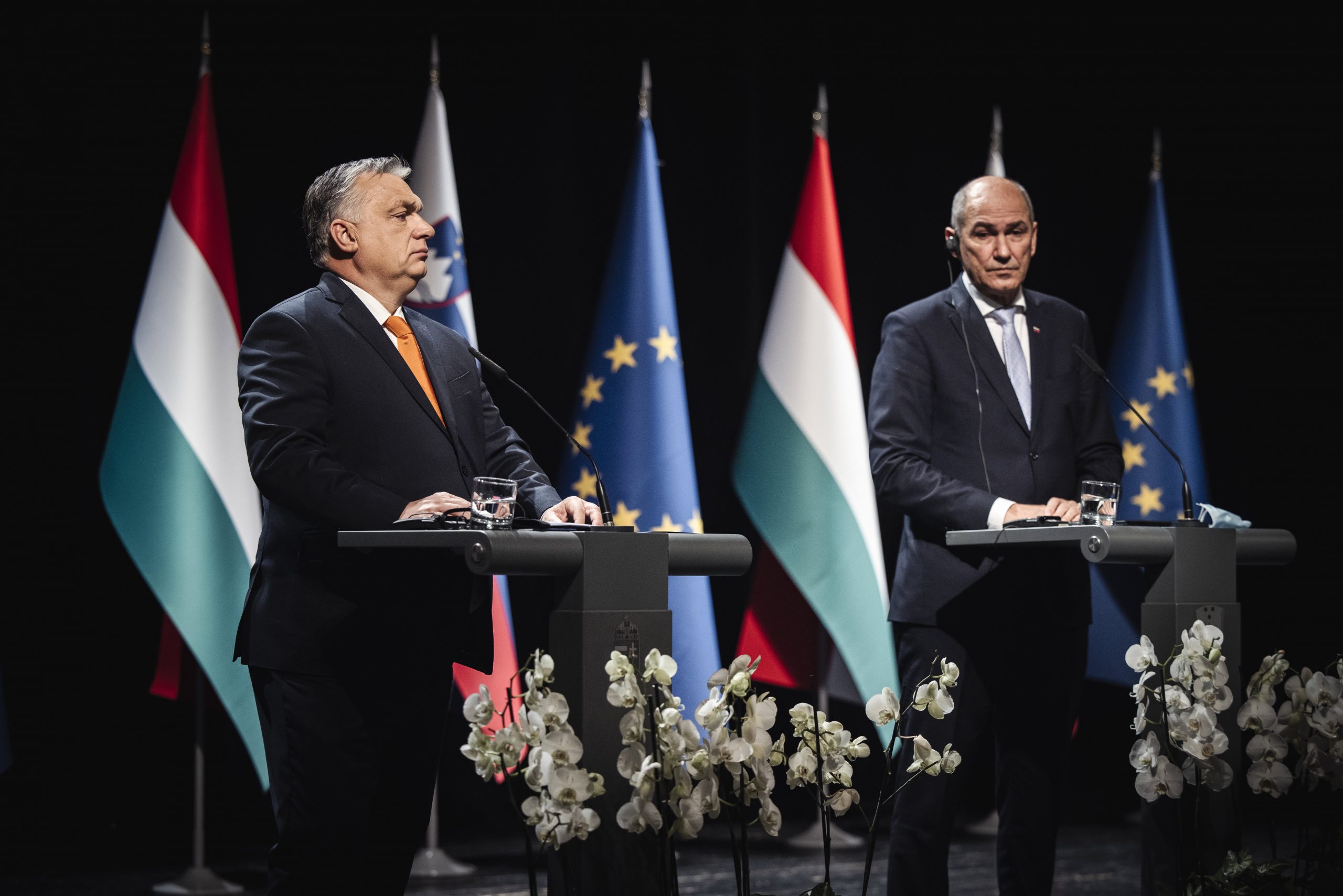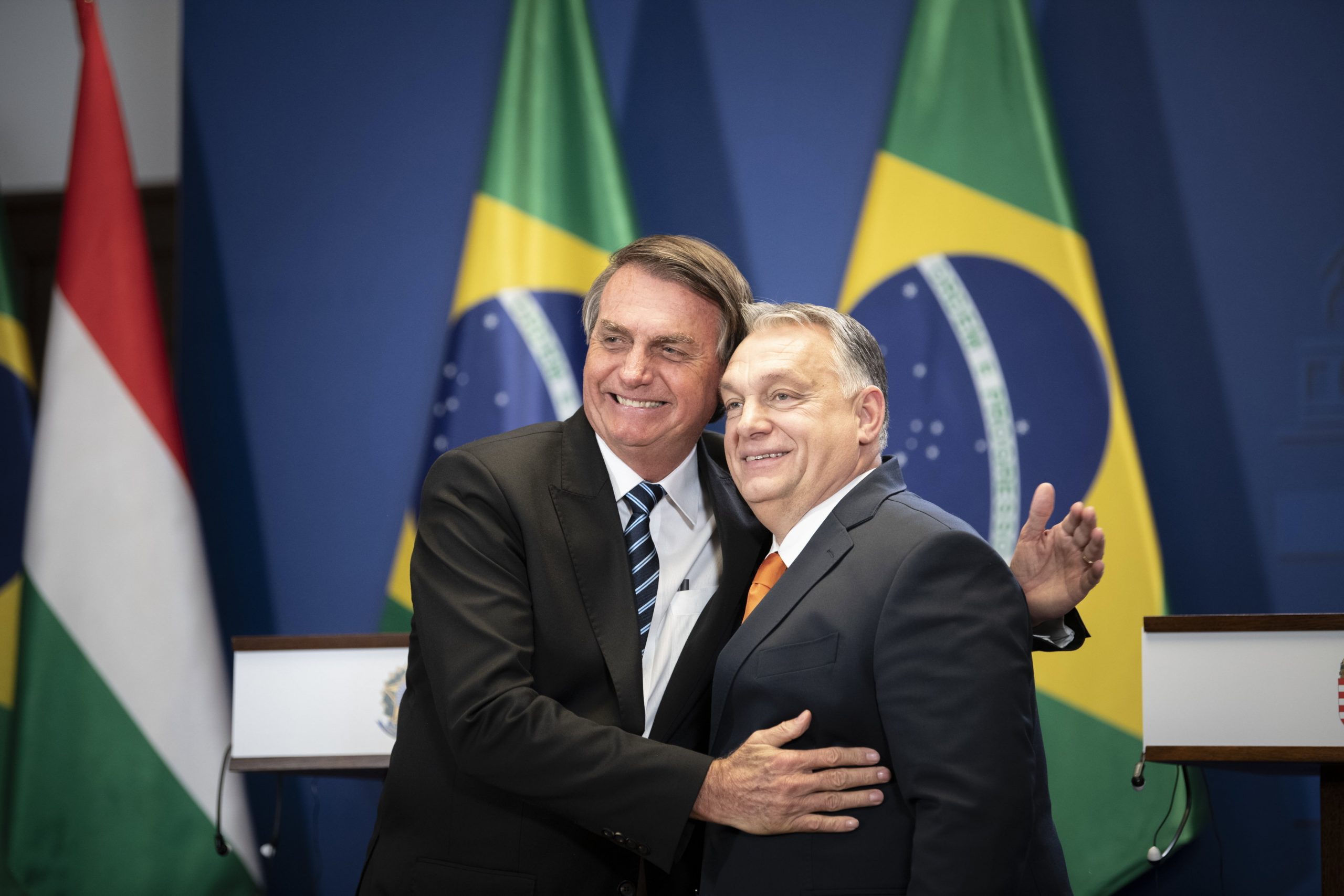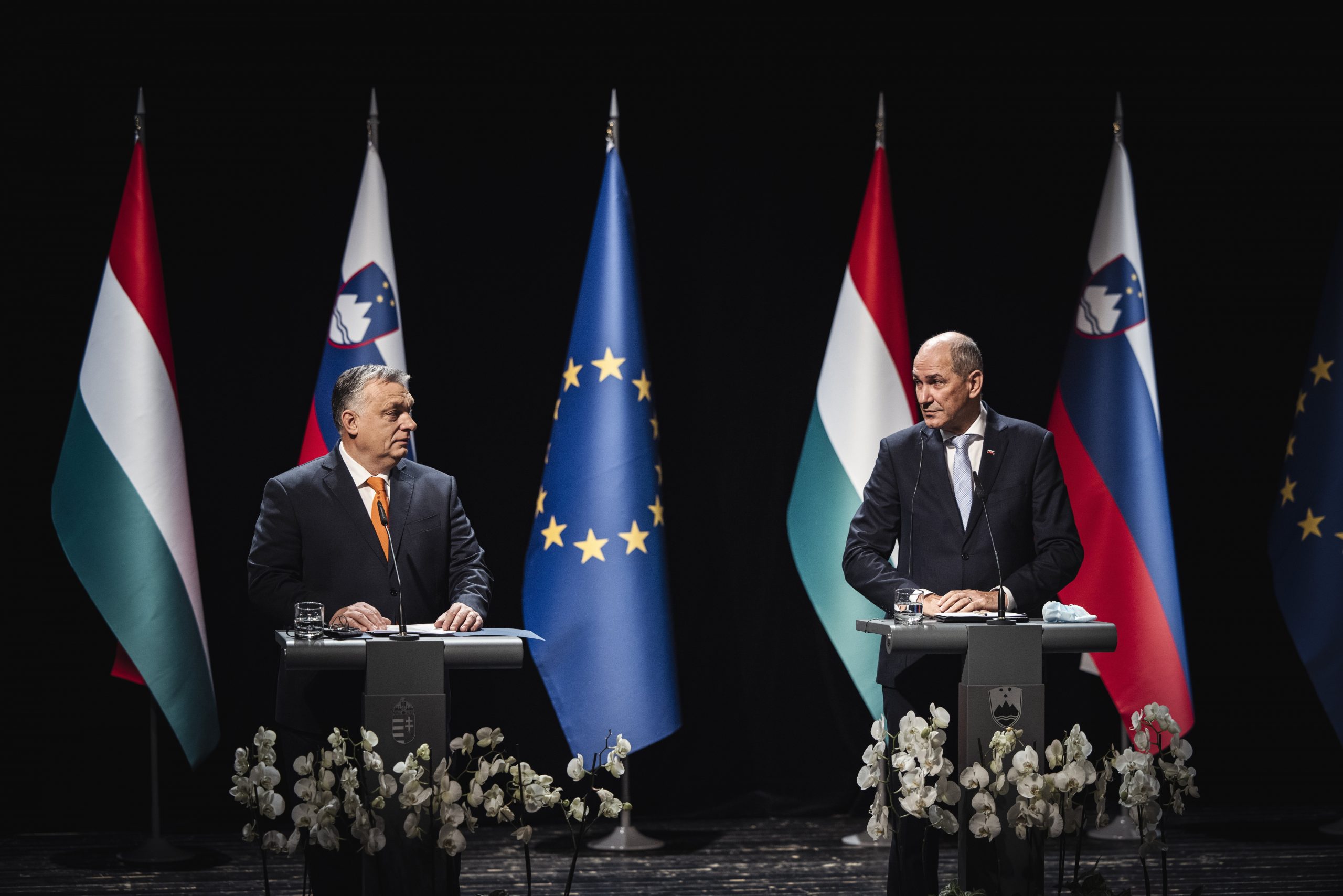
Hungary and Slovenia are among the few economies that were “afflicted” by the pandemic but emerged from the crisis stronger than they were before, Prime Minister Viktor Orbán said on Monday in Lendva (Lendava), in northeast Slovenia, after talks with his Slovenian counterpart Janez Jansa.
Jansa and Orbán signed an agreement on regional crossborder developments.
At a joint press conference after the meeting, Orbán said the agreement would improve the lives of all citizens of Hungary and Slovenia by strengthening “friendship and alliance” between the two countries.
The world is currently facing challenges such as the Russian-Ukrainian conflict and “the changes in world economy in favour of the East against the West”, Orbán said. “Solutions will be easier to find together than separately,” he said.
Orbán noted changes in European economy. “A few years ago we thought central European economies were not viable without western Europe. That may still hold today, but now western European economies cannot work without central Europe, either,” he said.
Economic power is now more equally distributed, and co-dependency is stronger in the European Union, “so Hungary can represent its own truth, its own approach and its own plans more boldly”. “We are not troublemakers, merely stronger than we were and conscious of our right to have our voice heard” as much as that of western European countries, he said.
The stronger the cooperation among central European countries, the stronger their voice, he said.
Related article
Orbán Meeting Bolsonaro: Hungary and Brazil in "Coalition of the Sober"
According to PM Orbán, the two countries apply the same approach to global challenges, such as the issue of migration, aiding persecuted Christians, defending against attacks on families, a commitment to free trade and military development.Continue reading
Slovenia and Hungary both see minorities as assets rather than a source of conflict, Orbán said.
Responding to a question on the energy crisis, Orbán said the Slovenian government, which held the EU’s rotating presidency in the second half of 2021, “did everything in their power to warn the EU of an impending jump in energy prices we were not prepared for”. Other central European countries did the same, he said.
“This is not just about rising energy prices but also about the failure of European climate policy,” which he said was counting on long-term price raises as an incentive for people to cut consumption. “However, they failed to include protections against speculation,” he said.
A “new plan is needed, because the next step in the old plan” would be to raise prices for households and car fuel, he said. He pledged to “fight” against such measures.
Hungary’s government has kept its utility price cuts for households in place to protect private citizens, “but companies have suffered because the budget could not support a similar protection for them”, he said.
Orbán also pledged to keep Hungary’s investment environment “welcoming” for Slovenia. Meanwhile, Hungary aims to increase its weight in investments in the country, where it is currently the seventh largest investor, he said. “We want to come up to third or fourth place,” he said.
Related article
Jansa: Hungary-Slovenia Deal Enables More Comprehensive Cooperation
Trade between the two countries increased by 20 percent last year compared to the previous year, the Slovenian PM highlighted.Continue reading
Concerning the situation in Ukraine, Orbán said the goal was to maintain peace, but added that “goodwill is not enough to make peace”. “Peace requires power and the weak will not have peace,” he insisted. He warned that “we are not well off” because “Europe does not have a military force comparable to that of Russia, and so long as that is the case, Europe’s security will not be determined by the Europeans but by the Russians on one side and the Americans on the other”.
That is why the Hungarian government supports European efforts to build military cooperation within the community, developing a defence industry and creating “serious defence capabilities” to ensure peace, the prime minister said.
If the situation escalates in Ukraine, a neighbouring country, “Hungary will come under tremendous pressure”, he said. He noted that tens of thousands of people had fled to Hungary during the Yugoslav wars in the 1990s. The pressure would be even more severe from Ukraine, a much larger country, he said.
Answering a question about the upcoming parliamentary election, Orbán said “we are prepared for victory”. He said “we have the arguments” to continue on government, in terms of the “political, economic, and moral” achievements of the past 12 years, during which “Hungary ran forward and looks quite different” than in 2010.
Featured photo by Zoltán Fischer/PM’s Press Office


